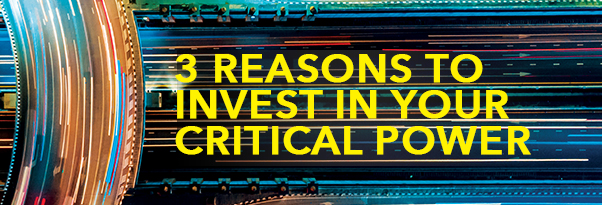
By Steve Vechy
Power failures and critical system outages are often front page news. New York City subways were recently impacted by one such system failure, possibly due to lead acid or nicad batteries – causing a major disruption for millions of daily commuters. And then there was the Arizona explosion in 2019 that caused significant injuries to nine first responders, all as a result of an imperfect large battery installation. Stories like this are unfortunately commonplace, and this is too often due to a lack of investment in critical power (also known as reserve power).
From my experience working 30+ years in the critical power industry, there are three main reasons that it’s now prudent to make meaningful investments of time, resources and manpower into back-up systems. I’m going to run through each reason, but first it might be helpful to describe a strong, top-performing critical power system.
A good critical power system must be both reliable and resilient, meaning they need to be both built to reliably respond to low-impact, high-frequency typical power system outages, and built to handle low-probability, high impact events such as natural disasters and extreme weather events. We unfortunately live in a changing world in which these events have become more and more frequent, which means that many of my clients are seeing more intense and more regular system failures. If your system is built for day to day reliability, but not for resilience in the time of crisis or disaster, you’re deeply at risk. A single high-impact event can devastate a power grid, leading to power gaps and blackouts that can have catastrophic consequences – possibly including loss of life.
So, what’s leading to this changing landscape? Why do we need to invest in our critical power, now more than ever?
Critical power is out of sight and out of mind until you have a problem. Then it’s often too little, too late. Instead of waiting for a serious problem to arise, why not look at your back-up system
now, put a plan in place for proactive management and maintenance, engage with experts and upgrade your system elements while everything is still functional. Taking this action may ultimately be what comes between your business, your clients and disaster.
Steve Vechy is Director of Engineering & Marketing at Concentric, LLC. He can be reached at [email protected].